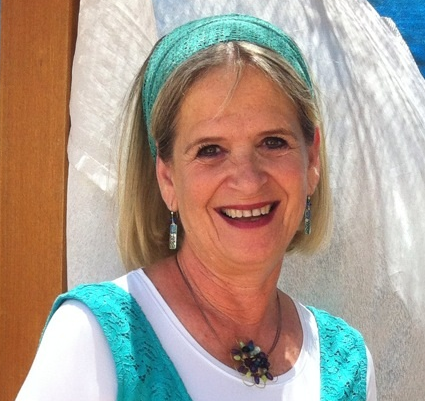
Lifestyle/Community

Tools to carry us through a crisis
She was sitting in a safe room in the middle of Ashkelon while rockets were fired overhead, but Debbie Gross remained calm as she advised South Africans about how to deal with the trauma of the war in Israel.
Gross, a trauma therapist and director of Tahel Crisis Center in Jerusalem, partnered with Koleinu SA and the Shoshana Foundation to host a webinar titled “Feeling safe in an unsafe world”.
“On 7 October, our lives were turned around,” she said, “and our basic assumptions about many things were shattered. When too many of these assumptions are shattered, that can cause trauma.”
These included assumptions about the government, army, and Israel’s ability to defend itself. Though most people know about post-traumatic stress disorder, there’s something else called PTG – post-traumatic growth, Gross said, which is when we “take all our tools and not only get through a terrible trauma, but grow and even thrive from it”.
To do this, she said, it’s important to build a toolbox to prevent trauma in times of crisis. She compared this toolbox to a bank account, a storage room, or a pantry.
“Many people have been comparing what’s going on now in Israel to 9/11 in the sense that nobody believed such an attack could happen,” Gross said. Rudy Giuliani, New York City mayor at the time, managed to react efficiently. “About seven or eight years before 9/11, he brought together all his top advisors to plan for a building in New York having a gas explosion. And then he took that plan and put it in a drawer. When 9/11 occurred, all he had to do was pull out the plan and start working.”
When we’re stressed, she said, we need to consider it as a scale, with what’s stressing us out on the one side and our resources on the other. “What happens most often is that our stressors are much heavier than our resources because we haven’t put our resources together in one place so we can access them.” She suggested making a list of your stressors long before any crisis or panic.
Describing what happens when we panic, Gross said, “If I’m standing in the middle of the jungle and a lion is coming at me, my brain will secrete two hormones, cortisol and adrenaline, and I’ll suddenly have energy. This causes a fight-or-flight reaction. But if that SOS situation lasts for too long, it leads us to freeze and often we can’t function. So, we have to find ways to teach our brain to secrete other hormones.”
There are five steps to take when facing a crisis, Gross said. “Step number one: recognise that this is a crisis and it could be traumatising. None of us ever thought we would see slaughter like this happen in eretz Yisrael.”
Secondly, maintain realistic expectations, realising it could take you time and energy to get through it. The next step is to keep to your daily routine where possible. If you can’t, build a new one. By keeping to a routine, you’re signalling to your brain that “you aren’t in the jungle”, Gross said.
Routine is particularly important for children in crisis, she said. “They need boundaries and normalcy. And if you’re far away, by setting up a time every day that you’ll call them, that’s giving them a routine.”
The fourth step is to gather your resources so you can use them, and the fifth is to be aware of your surroundings and what the people around you need and can offer you.
“Sociologists have found one of the most effective resources is to make a short list,” she said. Start with a list of resources. “For this list, a resource must be three things – it must be cheap, light, and accessible. For example, we have a home to live in, we have food, we have a spouse or friend or family.”
The next is a list of what you’re going to do today. “By making this list, you’re giving your brain another message: ‘I’m capable.’ Have realistic expectations of what you can do. Don’t expect too much of yourself during a time of crisis. Try to just get that much done.”
Another list is who your human resources are. “Who are the people you can depend on? It’s important to rate them from one to three. We all might have a best friend that we love talking to, but every time you had a crisis, was she the one who really came through for you? Or maybe it was a neighbour that you’re not so close to, but every time you needed someone to drive you to the hospital or do something else, she was there for you.
“Another important resource is to unplug, put your phone away some of the time, to not listen to the news 24/7, because the more that we bombard ourselves with these horrible stories, the more we’re reconfirming to our brain that this is an SOS.
“Another is to have self-compassion. This is the time to understand that we’re all doing the best we can, we’re going to be okay, and we’re good enough.”
Along with lowering stress hormones, try to increase oxytocin levels. “Oxytocin is a hormone that calms us down,” she said.
The first way of doing this is what Gross calls “the butterfly”. “Put your hands straight out. And cross them over and make an X, then turn the X over and touch your shoulders and then go down to your elbows, up to your shoulders, and repeat. It’s like giving ourselves a hug.”
The next is to “take your right hand and put it on your heart and think of someone you love. See that person and feel that love.” Additionally, “Hug someone, whether it’s a baby, a spouse, a kitten, or a dog.
“Another way to increase oxytocin is to do acts of chesed [kindness]. Go to a neighbour and see how she’s doing, call someone who’s alone. See what you can do to reach out to somebody else.”
Another technique is to breathe. “Put your hands on your stomach, breathe in, fill your stomach, let it out. Calm breathing is different to the breathing of somebody under stress, so your brain realises you can’t be running away from a lion.”
An important tool is self-care. “Make sure that you’re sleeping, you’re eating, you’re getting some exercise, you’re doing some sort of relaxation, whether it’s breathing, yoga, or meditation, and a hobby. These five things – eating, sleeping, exercise, relaxation, and hobbies are the first things we throw out the window in a time of crisis. But we must take care of ourselves so that we can be there to take care of others.
“Lastly,” said Gross, “find someone you can talk to and find time to talk because getting it out is so important.
“I can’t predict when this war will end,” she said. “I can’t promise you that everybody is going to be okay. But I can promise that our nation is just going to get better, and we’re going to rebuild eretz Yisrael.”
War trauma helpline
In this distressing time, we’re all struggling to find ways to cope. Victim support group Koleinu SA is offering a helpline to support anyone battling to deal with trauma related to the massacre in Israel and its war against Hamas.
Call the Koleinu SA helpline on +27 11 264 0341, Monday to Friday 08:00 to 12:00; 14:00 to 17:00; and 19:00 to 20:00.










